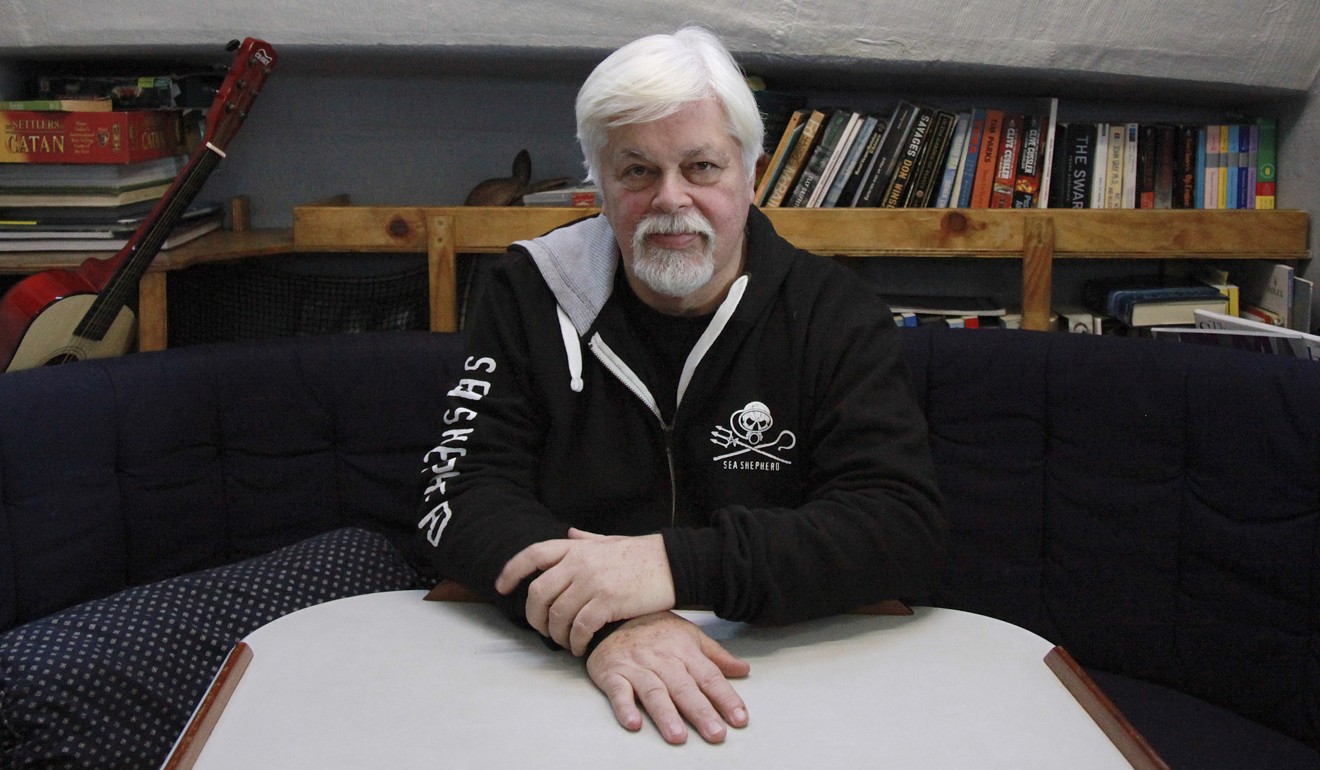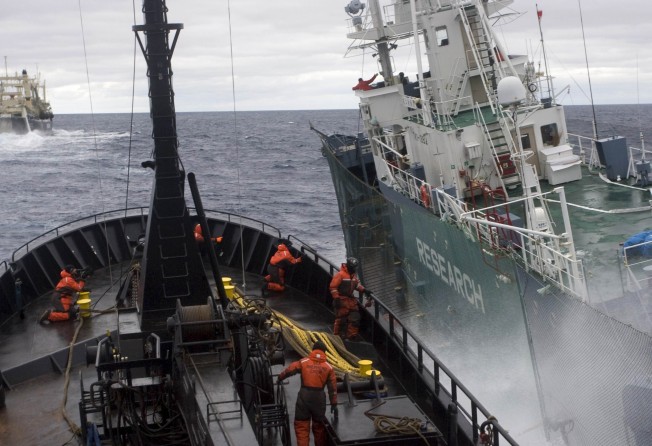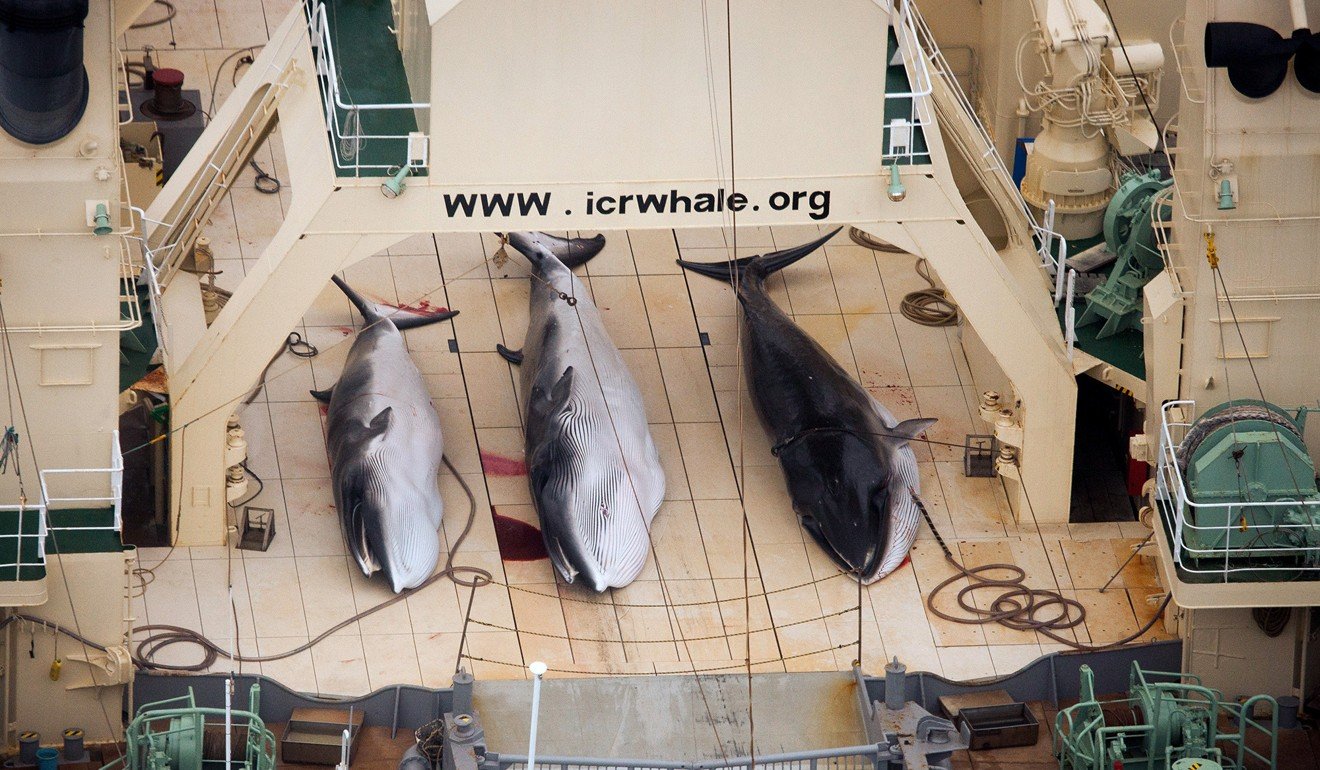
Sea Shepherd abandons pursuit of Japanese whalers, lashes ‘hostile governments’
Captain Paul Watson accuses ‘hostile governments’ in the US, Australia and New Zealand of being in league with Tokyo

The anti-whaling vessel Sea Shepherd will not contest the Southern Ocean against Japanese whalers this season, Captain Paul Watson has announced, accusing “hostile governments” in the US, Australia and New Zealand of acting “in league with Japan” against the protest vessel.
Sea Shepherd has been obstructing Japanese whaling vessels in the Southern Ocean each year since 2005, but Watson said the cost of sending vessels south, Japan’s increased use of military technology to track them, and new anti-terrorism laws passed specifically to thwart Sea Shepherd’s activities made physically tracking the ships impossible.
Australia took Japan to the international court of justice over its Southern Ocean whaling programme in 2014, winning a judgement that condemned Japan’s whaling programmes as being in breach of the International Whaling Commission’s ban on commercial whaling. The court rejected Japan’s argument that its whaling was for “scientific” purposes.

Watson said his volunteer organisation could not compete with Japanese military satellite technology, which tracked Sea Shepherd in the ocean. Japan has also passed anti-terrorism laws that make protest ships’ presence near whalers a terrorist offence.
“We’re just a group of volunteers trying to do the impossible, trying to do the job Australia and New Zealand and the United States and all these others countries should be doing but they’re too busy appeasing Japan.”
In a statement on Monday, Watson said the Japanese whaling companies “not only have all the resources and subsidies their government can provide, they also have the powerful political backing of a major economic superpower. Sea Shepherd however is limited in resources and we have hostile governments against us in Australia, New Zealand and the United States.”

Speaking on radio in Australia, Watson accused the Australian government of acting in league with Japan, indirectly supporting whaling by obstructing Sea Shepherd’s activities.
“Australia is definitely in league with Japan,” he said.
“When our ships come in we’re harassed, we’re investigated, we’re searched, when our crew come in from other countries they have problems getting visas. We’ve been applying for charity status for 10 years – they won’t give it to us. This has been extremely hostile.”
The Sea Shepherd’s pursuit of whaling vessels has also attracted criticism. The Japanese government has described Sea Shepherd as “ecoterrorists” and sought to have Watson placed on an Interpol watchlist.
Watch: 2010 anti-whaling clash in Antarctic
Security experts have criticised Sea Shepherd’s tactics at sea, saying they endanger lives.
And Sea Shepherd was fined for contempt of a US court for breaching an injunction not to physically attack or harass Japanese whalers.
In a statement issued on Tuesday, Watson said Sea Shepherd’s 12 years of action against Japan’s whalers had been successful, having seen 6,500 whales saved, not a single humpback killed, and only 10 endangered fin whales killed.
Japan’s whaling quota has been reduced from more than 1,000 whales a season to 333 a year.
Watson said Sea Shepherd would “never abandon the whales” but would formulate a new plan for contesting Japan’s whaling.